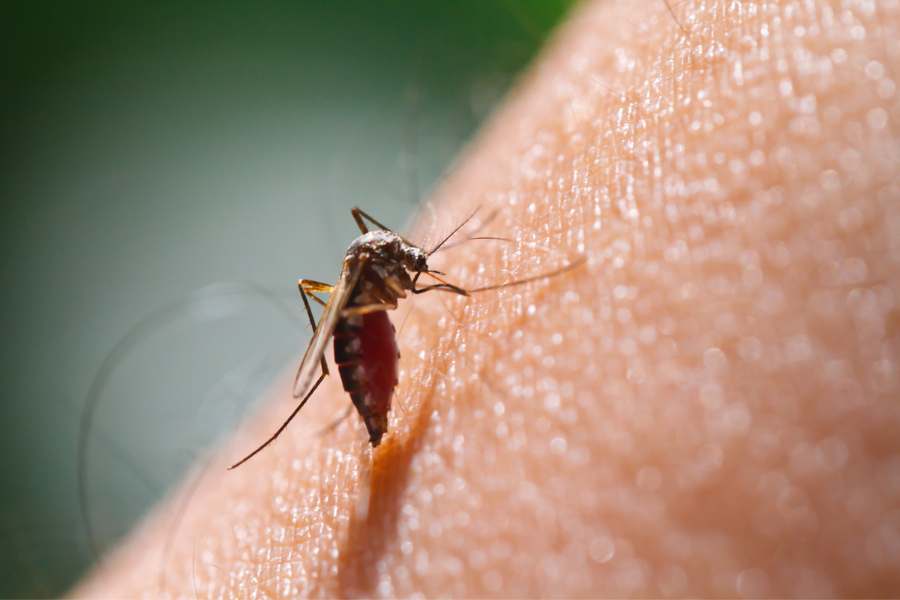Whether it be a leisurely hike in the woods, a picnic in the park, or simply enjoying your backyard, insect bites are an inevitable part of outdoor activities. While most bites are harmless and merely an itchy nuisance, some can lead to more severe reactions or infections. Knowing how to treat an insect bite can alleviate discomfort and prevent further complications.
Most insect bites present common symptoms such as pain, redness, and swelling. However, the severity of these symptoms can vary depending on the individual’s reaction and the type of insect. In the following sections, we will explore different aspects of insect bites, including identification, treatment, and prevention.
What are the common symptoms of insect bites and stings?
Recognizing the signs of insect bites and stings is the first step in treatment. The most common symptoms include:
- Localized pain or stinging sensation
- Redness and swelling around the bite site
- Itching and irritation
- Development of a blister or rash
While these are typical reactions, it’s essential to monitor for signs of more serious conditions, such as difficulty breathing, dizziness, or swelling in other areas, which may indicate an allergic reaction.
In most cases, home care is sufficient to manage these symptoms. However, persistent or worsening symptoms should prompt a visit to a healthcare provider.
How can I identify different types of insect bites?
Accurately identifying an insect bite can guide the appropriate course of treatment. Here are some characteristics to help you distinguish between various bites:
- Mosquito bites often appear as puffy, reddish bumps that become itchy shortly after being bitten.
- Bee stings are typically accompanied by a sharp pain and a stinger left in the skin.
- Tick bites may go unnoticed at first but can lead to a bullseye-shaped rash if associated with Lyme disease.
- Spider bites can range from mild to severe, with some leaving two puncture marks on the skin.
Knowing the appearance and potential risks associated with specific insect bites can assist in early detection and treatment, especially in cases where medical intervention is necessary due to venomous bites or risk of disease transmission.
What should I do if I experience severe allergic reactions?
If you experience symptoms of a severe allergic reaction, such as anaphylaxis, immediate action is crucial:
- Call emergency services or have someone take you to the nearest emergency room.
- If you have an epinephrine auto-injector (EpiPen), use it as directed.
- Try to remain calm and still to prevent the spread of venom, if applicable.
- Lie down and elevate your legs to help maintain blood flow if you feel faint or dizzy.
Allergic reactions can escalate quickly, so do not hesitate to seek medical attention if you notice symptoms such as swelling of the face, throat, or lips, difficulty breathing, or a rapid heartbeat.
How to treat specific insect bites, like mosquito and tick bites?
Treating insect bites effectively often requires tailored approaches depending on the type of insect:
For mosquito bites:
- Wash the area with soap and water to minimize infection risk.
- Apply a cold pack to reduce swelling and itching.
- Use topical anti-itch creams or antihistamines to alleviate discomfort.
For tick bites:
- Remove the tick as soon as possible using fine-tipped tweezers, pulling it straight out to ensure the entire tick is removed.
- Clean the bite site thoroughly and monitor the area for signs of Lyme disease.
- Consider seeing a doctor for further evaluation and possible antibiotic treatment.
Each insect bite may require specific care, and it’s important to be informed about the best practices for treatment.
What are the best home remedies for insect bites?
Many effective home remedies can provide relief from insect bites:
- A cold compress can reduce swelling and numb the area, lessening the itch.
- A paste made from baking soda and water helps neutralize acidic venom and soothe the skin.
- Applying honey has natural antibacterial properties and can help prevent infection.
- Aloe vera gel can cool the skin and provide relief from itching.
Remember that home remedies should not replace professional medical treatment if symptoms worsen or if you have concerns about a bite.
How can I prevent insect bites and stings while traveling?
To prevent insect bites and stings while traveling, consider the following tips:
- Wear protective clothing, including long sleeves, pants, and hats.
- Use insect repellent that contains DEET, picaridin, or lemon eucalyptus oil.
- Avoid perfumed lotions or soaps that may attract insects.
- Stay in accommodations with screened windows or use bed nets if in areas with a high risk of disease-carrying insects.
- Be extra cautious during dawn and dusk when insects like mosquitoes are most active.
Preventative measures are particularly important in regions where insect-borne diseases are prevalent, and taking proactive steps can significantly reduce the risk of bites.
Preguntas relacionadas sobre el tratamiento de picaduras de insectos
What is the best treatment for an insect bite?
The best treatment for an insect bite often involves cleaning the area, using a cold compress to reduce swelling, and applying topical treatments to alleviate itching. Over-the-counter antihistamines can also be useful for managing reactions.
For more severe bites, or if an infection develops, seeing a doctor may be necessary to obtain prescription medication or further interventions.
How do you know if a bite is serious?
A bite may be serious if you experience symptoms like extensive swelling, red streaks leading from the bite, pus, or increased pain. Systemic symptoms such as fever, chills, or swollen lymph nodes also indicate the need for medical attention.
If a bite leads to severe allergic reactions, such as difficulty breathing or loss of consciousness, it is considered a medical emergency.
When should you worry about an insect bite?
You should worry about an insect bite if it results in an allergic reaction or shows signs of infection. Additionally, if the bite comes from a potentially dangerous insect like a tick or if you are in an area known for insect-borne diseases, seek medical advice.
Always pay attention to the bite’s progression and seek medical care if the symptoms fail to improve or worsen over time.
What is best cream for insect bites?
The best cream for insect bites will contain ingredients like hydrocortisone or antihistamines to reduce itching and inflammation. Calamine lotion is also a popular choice for its soothing properties.
Natural alternatives such as tea tree oil or witch hazel can provide relief as well but check for skin sensitivity before applying broadly.
Finally, if you’re seeking prompt and effective care for insect bites, consider visiting Doctor 24 Hours Arenal Mallorca. Their medical professionals can provide the treatment and guidance needed to ensure your insect bites are managed correctly and efficiently.

